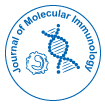Improvement of Insulin Sensitivity and Maintenance of Glucose Homeostasis in Insulin-sensitive Tissues via PPAR-γ and Through Activation of PI3K/p-Akt Signaling Pathway by Resveratrol in Type 2 Diabetic Rats
Received Date: Nov 06, 2017 / Accepted Date: Feb 07, 2018 / Published Date: Feb 14, 2018
Abstract
Objective: Increasing evidence in both experimental and clinical studies suggests that there is a close link between hyperglycemia, oxidative stress, and diabetic complications. Resveratrol a polyphenolic compound found in various natural food products.
Methods: Four groups male adult albino rats were used in this study: Negative control, Positive control, Therapeutic group and Standard group.
Results: The treatment of resveratrol significantly reduced the elevated levels of blood glucose, Total cholesterol, Triglyceride, LDL-c, Urea and Creatinine in positive control as compared with negative control. Treatment of resveratrol also reverted back the decreased levels of insulin, HDL-c, Irisin, enzymatic antioxidant (catalase and superoxide dismutase) as well as decreased level of the non-enzymatic antioxidant (reduced glutathione) in tissue extracts from different organs of diabetic rats to near normal values. Resveratrol significantly increased expression of the Peroxisome proliferator-activated receptor γ (PPAR-γ) gene in adipose tissue compared to positive control. It also regulated insulin mediated glucose uptake in adipose tissue through activation of Phosphatidyl inositol 3 kinases serine/threonine-specific protein kinase (PI3K/p-Akt) signaling pathway. PPAR-γ gene showed many different expressions for other side the PPAR-γ sequences from the adipose tissue confirm there is a mutation with the gene isolated from positive control against therapeutic group, meaning the Type 2 diabetes cause a mutation in the gene sequencing compared to negative control. Hence, we find the opposite with the PPAR-γ sequencing in therapeutic group.
Conclusion: These results clearly suggest that the resveratrol has an antioxidant effect and could improve adipose tissue insulin sensitivity and maintain glucose homeostasis in adipose tissue.
Keywords: Type 2 diabetes; Resveratrol; Akt; PPAR-γ ; PI3K; Irisin; Metformin; STZ
Citation: Mohammed FZ, Gurigis AA, Abdel-Mageed WS, Nassr A (2018) Improvement of Insulin Sensitivity and Maintenance of Glucose Homeostasis in Insulin-sensitive Tissues via PPAR-γ and Through Activation of PI3K/p-Akt Signaling Pathway by Resveratrol in Type 2 Diabetic Rats. J Mol Immunol 3: 119.
Copyright: © 2018 Mohammed FZ, et al. This is an open-access article distributed under the terms of the Creative Commons Attribution License, which permits unrestricted use, distribution, and reproduction in any medium, provided the original author and source are credited.
Share This Article
Open Access Journals
Article Usage
- Total views: 4605
- [From(publication date): 0-2018 - Apr 04, 2025]
- Breakdown by view type
- HTML page views: 3699
- PDF downloads: 906
